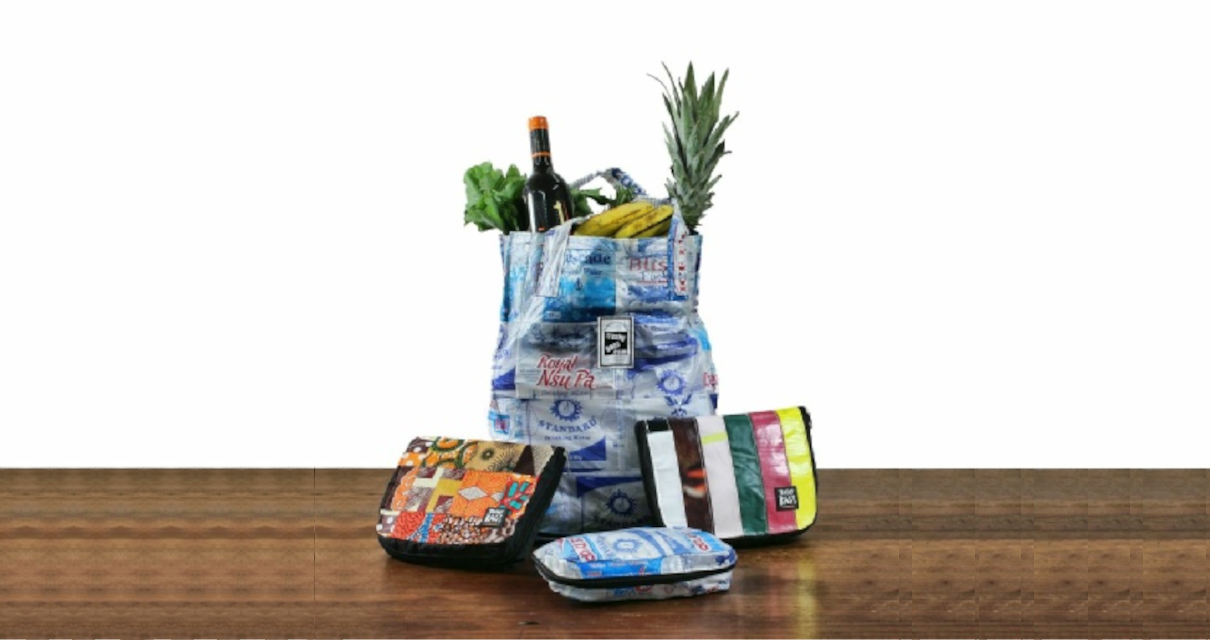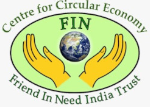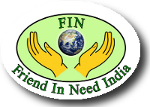
Cristina García Santos
FIN Intern – P2 Programme in Collaboration with Fusion Waste Management and Consultancy
In 2015, the waste generation rate in Ghana was 0.47 kilogrammes per capita every day. Plastic waste was the second type of waste generated in the country, accounting for 14% of total waste. An average of 80% households separated their waste effectively[i]. In Accra, waste generation is expected to grow by 2030, from 2.6 tons per day in 2010 to 4.4 tons[ii]. This is mainly due to the increase in population. 88% of the waste is collected in the city where collection services are provided. Yet only 40% of households in Accra have waste collection bins[iii].
New issues arisen during the 21st century bring about social entrepreneurship initiatives. These initiatives play a significant role in the reduction and reuse of waste, especially plastic waste. They also set an example of what can be done about the issue, so other initiatives can follow and replicate their example. These types of entrepreneurs are also involved in awareness campaigns and events, engaging, especially younger generations, on the importance of the environment and the danger of overlooking the impact of waste generation. A good example of social entrepreneurship is Trashy Bags, an initiative that started in Accra in 2008 due to the drastic rise in plastic waste, which increased by 70% in ten years. Only 2% of this plastic waste was collected[iv]. The NGO reuses plastic to create different types of bags, selling them in Ghana, but also exporting a big percentage of products abroad. During their visit to Accra, Prof. Dr. Shyama Ramani and Maria Tomai – FIN Trust and SITE4Society – discussed the work and the products of the NGO with Elvis Aboluah, the project director of Trashy Bags[v].

On their creation process, Trashy Bags use different materials and type of plastics to make different products. They  have several types of bags, such as pencil cases, water bags, backpacks, shopping bags, computer cases, guitar bags or travel bags. By using plastics of different types, they manage to create one-of-a-kind bags, each of them having their own colours and patterns. One of Trashy Bags best-sellers is the shopping bag: it folds very easily to fit in every bag, and it can carry up to 20 kilogrammes. They have also incorporated a quality control process to their production chain, where they test and check every bag they make. As part of this process, they wash and disinfect every plastic before using it to create their bags. They also check the resistance of each bag to be certain of how much weight they can endure. Their concern on quality goes beyond their bags production: the organisation is people-oriented too, being one of the main objectives the provision of quality jobs to their workers.
have several types of bags, such as pencil cases, water bags, backpacks, shopping bags, computer cases, guitar bags or travel bags. By using plastics of different types, they manage to create one-of-a-kind bags, each of them having their own colours and patterns. One of Trashy Bags best-sellers is the shopping bag: it folds very easily to fit in every bag, and it can carry up to 20 kilogrammes. They have also incorporated a quality control process to their production chain, where they test and check every bag they make. As part of this process, they wash and disinfect every plastic before using it to create their bags. They also check the resistance of each bag to be certain of how much weight they can endure. Their concern on quality goes beyond their bags production: the organisation is people-oriented too, being one of the main objectives the provision of quality jobs to their workers.

Trashy Bags has partnerships with several companies that perceive the organisation as an example for their CSR. One example of these partnerships is their collaborative project with a fertilizer company making school backpacks for the farmers’ children. Their work is having a positive impact on the issue of waste, setting example by giving a second life to plastic. They are also involved in awareness initiatives and campaigns, explaining the importance of recycling and reusing in schools and communities. They seek to increase the engagement on waste and environmental issues to encourage a behavioural change on citizens’ practices. Trashy Bags started and managed to survive thanks to family donations. For 12 years, the NGO worked more like a charity. This has changed recently and, for the past 2 years, their profits and costs are even. In fact, they export part of the production to other countries: in only two months, they have shipped over 10,000 of their recycled shopping bags to the US.
The example of Trashy Bags has motivated behavioural change in Kameswaram, an Indian village, where they are also creating different bags and products from plastic waste. Good actions encourage good actions, as simple as that.


[i] Miezah, K., Obiri-Danso, K., Kádár, Z., Fei-Baffoe, B., & Mensah, M. (2015). Municipal solid waste characterization and quantification as a measure towards effective waste management in Ghana. Waste Management, 46, 15-27. doi: 10.1016/j.wasman.2015.09.009
[ii] Oteng-Ababio, M. (2014). Rethinking waste as a resource: insights from a low-income community in Accra, Ghana. City, Territory and Architecture, 1(1), 10. doi: 10.1186/2195-2701-1-10
[iii] Climate and Clean Air Coalition Municipal Solid Waste Initiative. Solid Waste Management in Accra. CCAC. Retrieved from https://www.waste.ccacoalition.org/sites/default/files/files/city_fact_sheet/Accra_MSW_FactSheet_0.pdf
[iv] Trashy Bags: Eco-friendly recycled plastic bags and gifts, made in Africa. Retrieved from http://www.trashybags.org
[v] For more information about the interview, please visit http://site4society.merit.unu.edu

